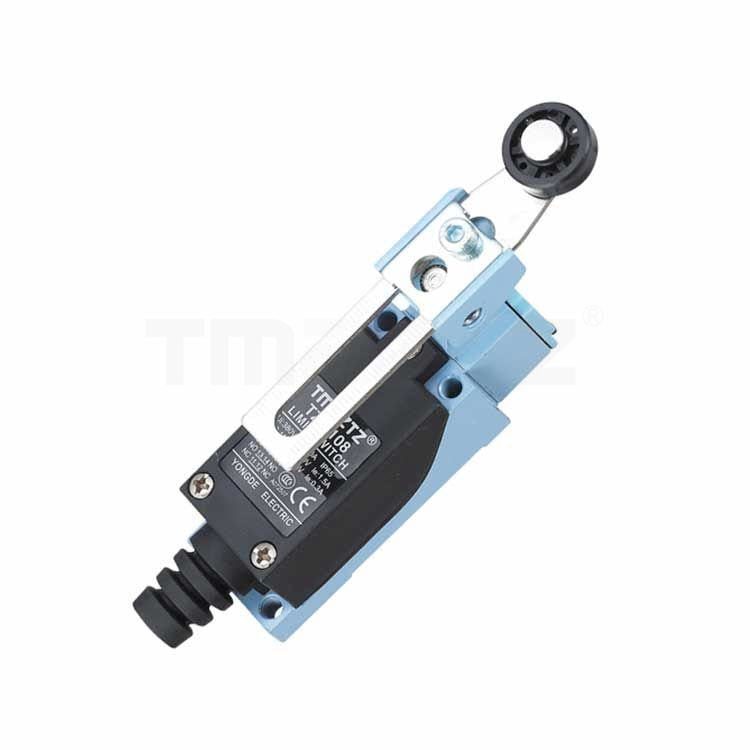What Is a Limit Switch?
A limit switch is an electrical switch used to define the extreme positions of mechanical equipment. It serves as a common low-current master control device. The limit switch, also known as a travel switch, is employed to control the travel of mechanical devices and provide limit protection. This mechanical switch involves components such as mechanical triggering parts and limit switch execution parts, which create mechanical contacts. Whether these contacts are open or closed depends on the combination of other electrical components used with the travel switch, and it is not a fixed state. In essence, when designing a circuit, achieving A-on and B-off or B-on and A-off is the primary consideration.
1. Types of Limit Switches
A limit switch is assembled inside a casing to protect the built-in microswitch from external forces, water, oil, gas, dust, and other potential damages. This configuration is particularly suitable for applications where special requirements exist for mechanical strength and environmental adaptability. The shapes generally fall into three categories: horizontal, vertical, and compound.
2. Functions of Limit Switches
Limit switches can be categorized into working limit switches and extreme limit switches. Working limit switches provide signals when the mechanism reaches a certain position, indicating the completion of an action. Extreme limit switches, on the other hand, prevent mechanisms from exceeding the designed range of motion, averting potential accidents. Working limit switches are installed where a change in the mechanism's condition is required, signaling other related actions after the switch is activated. Extreme limit switches are placed at the furthest end of the mechanism to safeguard against excessive motion and prevent damage.
3. Applications of Limit Switches
Limit switches find extensive use in various industries, including construction, ports, and mining. They play a crucial role in controlling and limiting the spatial three coordinates of lifting and conveying machinery. Comprising high-precision, large gear ratio reducers, mechanical memory control mechanisms synchronized with their output shafts, and sensors, limit switches like the WTAU series are known for their small size, versatile functionality, high precision, adjustable limits, and ease of maintenance, installation, and adjustment. These features make them widely applicable in the field of engineering machinery.
In summary, a limit switch is a versatile component with applications ranging from signaling the completion of mechanical actions to preventing accidents caused by exceeding design limits. Its significance lies in its ability to control movement, ensure safety, and contribute to the efficiency and reliability of various mechanical systems.
189
0
0
All Comments (0)
Previous: How to Choose a Micro Switch?
Next: Frequently Asked Questions about Waterproof Flexible Metal Conduit
If you are interested in sending in a Guest Blogger Submission,welcome to write for us!





Comments